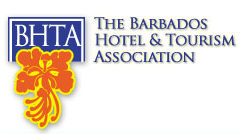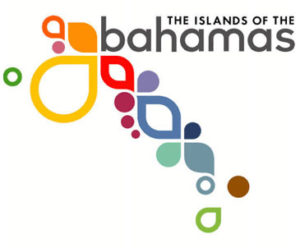By Karine Copur, WPICC, DWC of Champagne and Macarons
Below are the nine most common questions about wedding planning that I get sent.
1. When should I send out my invitations?
Wedding etiquette dictates that out-of-town guest invitations should be sent out twelve weeks prior to the wedding. Invitations should be sent out approximately six to eight weeks before the wedding day, and the R.S.V.P. date should be approximately three weeks before the wedding day.
It is imperative that you indicate the actual start time of your ceremony on your invitations. For example, if your ceremony is scheduled at 3:00 pm, please note this timing on your invitation. It is not wise to “trick” your guests and note a 2:30 pm ceremony start time, as we will have guests arriving by 2:00 pm in anticipation of your 2:30 pm ceremony. When your guests arrive at 2:00 pm they become disgruntled that they have been fooled and now have to wait an entire hour before the ceremony begins. It is always best to have your event start off on a positive note.
2. Should I invite everyone I know?
Making a guest list is sometimes one of the most challenging parts of your wedding planning. Some parents who are involved in the wedding process will want to invite everyone they know as this is one of the most important events of their life. They will want to share it with everyone they know. It is important not to offend their feelings, but to explain to them that you are limited in terms of the number of guests you can invite based on the venue’s capacity.
For example, you can have a wedding brunch for example the next day to celebrate with those who couldn’t be there on your wedding reception. From there start creating an A & B guest list. Typically, A guests will receive their invitations 6-8 weeks prior, this time, send out their invitations 10-12 weeks prior. Once you receive the RSVPs with “no” (“no’s” are usually the first responses), then you can invite someone else from the B list.
What to never do in your wedding invitations:
- Never say “Adults only” but instead send RSVP cards with the name of the invited guests already filled out
- If you are inviting some children, you need to invite them all
- Never include Gift Registry information in the invitations
3. How do I communicate the dress code to my guests?
Through your invitations, you can set the tone for your guests to know whether you will have a formal or informal wedding. Depending on the quality and thickness of the stationery paper you are using but also based on the wording and how you will be sending the invitations, you can let your guests know how to dress for your wedding. For example, if you are sending your invitations by email, this sets the tone of an informal wedding. Engraved invitations and/or with a seal will set a formal and/or ultra-formal wedding.
4. Should we have an open bar or a cash bar?
Your wedding guests should be treated the same way they would be treated as if they were invited into your home. Whoever is hosting, whether it is the wedding couple or the parents, should never expect the guests to pay for any part of the wedding, including their drinks, as they are “guests”. Alcoholic drinks should always be served with food.
Typically, open bar options are available at your wedding venue. However, if it is not offered then you can always have a specialty drink during your cocktail reception, sparkling wine for your toast, and wine and beer during dinner.
5. Should I skip hiring a DJ to save money?
Most DJs’ roles are to play music during the ceremony, the cocktail reception, dinner and during dancing. However, some DJs also have the role of the Master of Ceremonies. They’re also in charge of directing the guests to dinner, introducing the wedding party, introducing any speakers, giving a toast, and most importantly keeping things moving in a nice pace, and keeping things under control. You can, and should have a professional take care of all of this, rather than changing or assigning one of your guests to change the music. It is well worth the cost!
So many times, I’ve seen guests not switching the song when required and creating an awkward moment of silence while waiting for the song to play. Other times, we’ve seen guests acting as MCs announcing the meals were about to come out or to help themselves to a buffet when the Floor Captain hasn’t confirmed whether or not the food was ready.
If you want your wedding to run smoothly, I recommend hiring a professional who can provide you the peace of mind and have a memorable wedding stress-free.
6. How do I communicate all meal restrictions and food allergies to my caterer/venue?
When you send out your wedding invitations, make sure you ask the following questions to your guests in their RSVP response. How many guests will be attending the wedding reception, including number of adults, children (4-12 years of age) and babies (0-3 years of age). Ask if the children will be having the same meal as the adults and make sure to ask if they have any food allergies or meal restrictions that we should be aware of.
Here is an example of a reply card format you can use:
| Kindly Reply by July 16th 2023 |
| Name _______________________________________ |
| ______ Will Attend ______ Will Not Attend |
| Number of Adults ______ |
| Number of Children (4-12 years of age) ______ |
| Number of Babies (0-3 years of age) ______ |
| Please note main entree preferred for Children 4-12: |
| Chicken Fingers and Fries or Same Adult Main Entree |
| ____________________________________________ |
| Please note Allergies/Special Meal Requirements For Each Person |
| _____________________________________________ |
7. Should I have a late-night station?
Based on the time you start your reception dinner, the dinner service will take about 2 hours, there will be some dancing and perhaps drinking for 2 hours, and your guests will most likely be hungry again before the end of the night. Most venues offer late-night stations, whether they are savory or sweet. It would be a good idea to surprise your guests with some end-of-evening snacks.
8. What are the benefits of having the wedding ceremony at the same venue as the wedding reception?
Some wedding venues are also offering ceremony locations. The advantages of combining both the wedding ceremony and wedding reception at the same place are:
- Ensuring your guests don’t have to drive far to get to the cocktail reception.
- Benefiting from the grounds to do your wedding photos
- Be on the property for you and your wedding party to get ready and on time for the ceremony
- If you want to communicate anything with the wedding coordinator on-site, you can do so right away from the comfort of your bridal suite
9. What items should I deliver to the venue for them to set up?
Some venues offer to set up some items on your behalf. Especially if you would like to provide or rent linen for your wedding reception, the venue will require the items to be delivered ahead of time. If you are renting or providing your own tablecloth, table runner, overlays, napkins, or charger plates, make sure to provide as many as required plus some additional ones (just in case).
We have put together a sample packing list below to help you list everything you need the venue to set up on your behalf.
Venue Packing List for Delivery
The above are Nine of the most common questions about wedding planning that we receive. If you have more please reach out at info@champagneandmacarons.com or ask in the comments below.










Leave a Reply